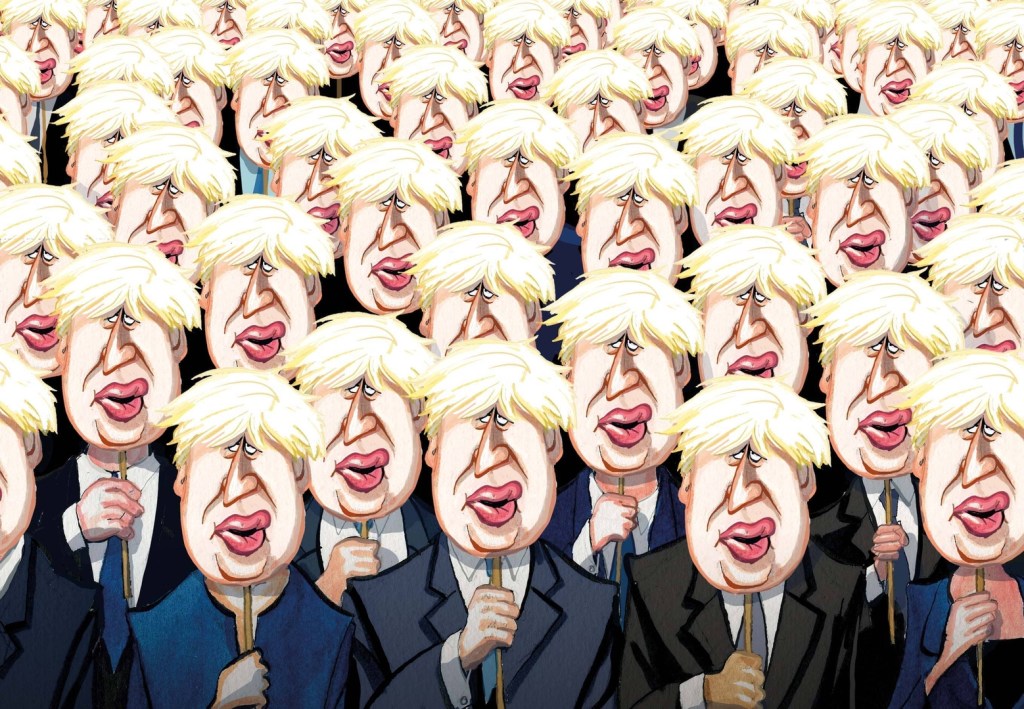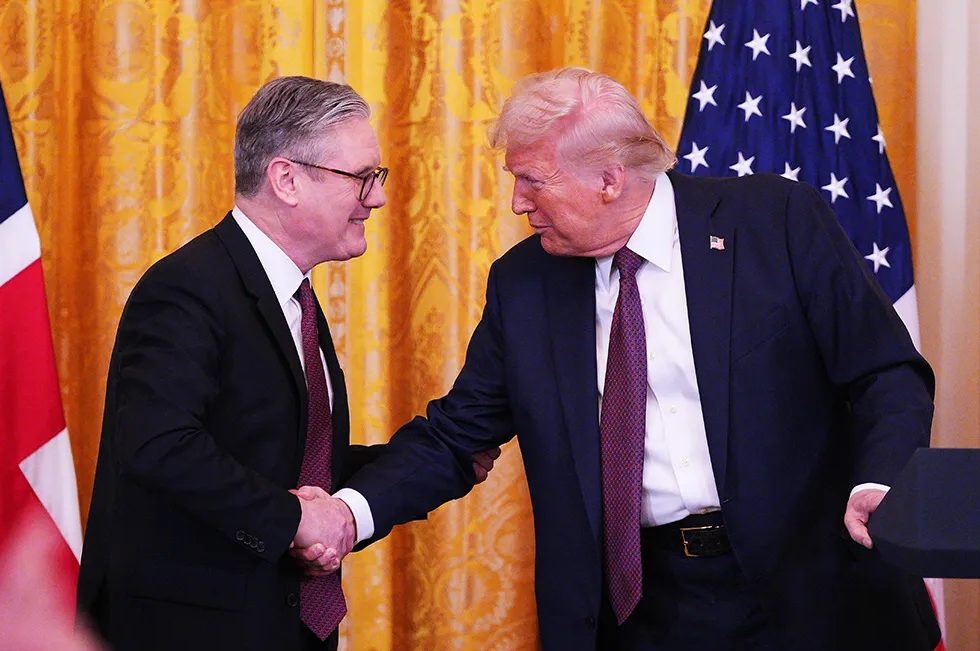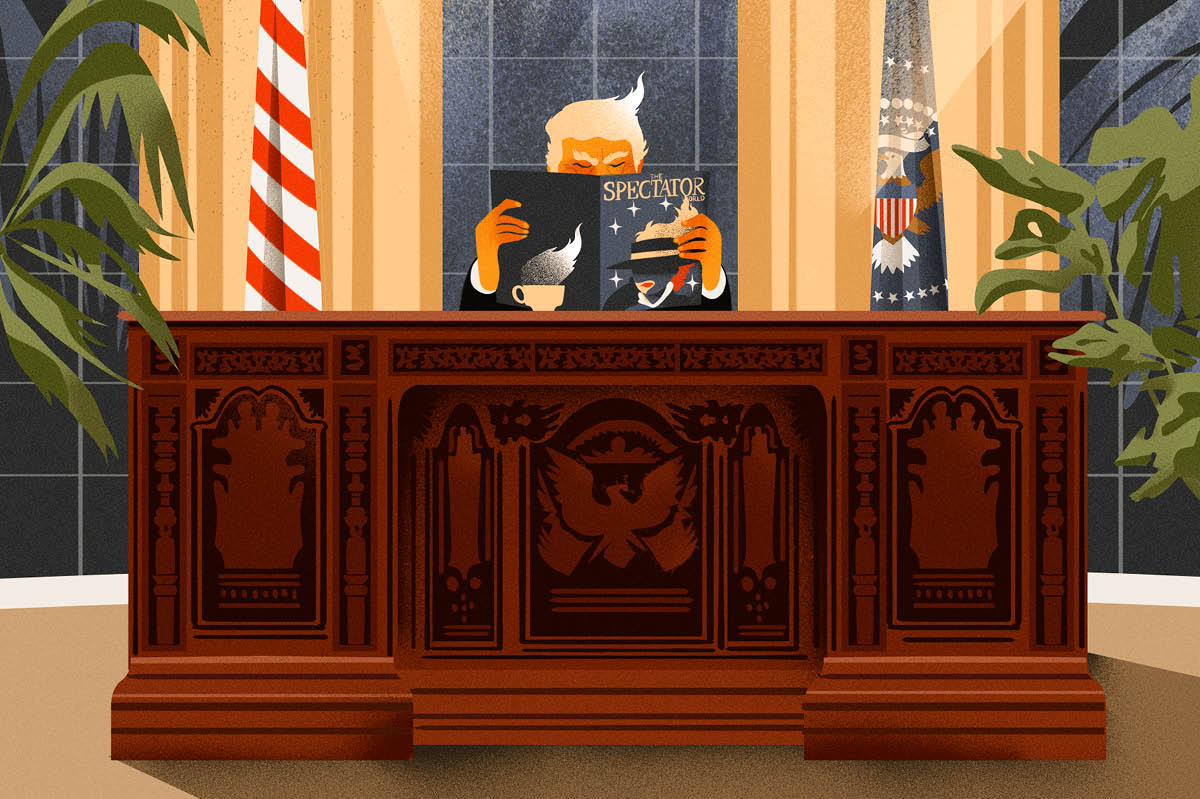In the aftermath of the fall of Liz Truss, amid the victory of the lettuce, the Conservative Party on Friday crashed to just 14 percent in the polls. This is the party’s lowest level of support in British polling history. The previous low, 17 percent, was recorded during the Brexit meltdown in the spring of 2019, amid Theresa May’s resignation and the Brexit Party insurgency.
Friday’s new low comes amid Trussfall, the complete failure of her project and a governing party that has gone from being one of the most successful parties in the Western world to where it is today — on life support. Here’s what I think happens next.
Liz Truss has gone. Trussonomics is dead. Nobody who is associated with libertarian politics, whether rightly or wrongly, will be let anywhere near power for a generation or more. The “liberal leaver” vision of Brexit as “Davos-on-Thames” — a project that was chiefly about low taxes, deregulation, putting London and the City on steroids and continuing with high rates of immigration — is over. Done. Poof.
As I have written previously, this was only ever the position of 5 to 10 percent of Brexit voters to begin with and was completely disconnected from where much of the rest of the electorate wanted to take the country. In Tory land, among Tory elites, it reflected a major miscalculation of what Brexit, in the eyes of many of its supporters, was really all about. To them it was a genuine redistribution of power away from London, away from financial services, away from a small cognitive elite. Furthermore it meant a redistribution of power away from an economy based on mass immigration and, if necessary, away from the European courts so that Britain can genuinely take control of its national borders amid a spiraling crisis in the Channel.
What about Truss herself? She will not only go down in the history books as the shortest serving prime minister in British history, at just forty-four days, a constant feature of trivia nights up and down the land for decades to come. She will also go down in history as the worst prime minister on record. The only beneficiaries of her premiership are Lord North, who lost America, and Theresa May who, unlike Boris Johnson, completely failed to solve the Brexit riddle while plunging Parliament into a protracted constitutional crisis. From here onwards, neither of them will have to battle it out for the bottom spot in the list of our worst political leaders.
But while Truss only lasted little more than a month — or 4.1 Scaramuccis — she has inflicted much longer-term damage on her party. The Tories have suffered an entirely self-inflicted two-punch combination that would make Mike Tyson proud. First came Johnson and his parties that broke Covid protocols, which blew a hole in the party’s support. And then came the adolescent experiment with Trussonomics.
This is the sheer scale of the challenge that confronts the next leader, who will be chosen within a week. And who will it be? If you look at the polling and just ignore parliamentary politics for a moment then Rishi Sunak is the preferred option among voters overall. He’s followed by Boris Johnson and, in a distant third, Penny Mordaunt.
But here’s the thing. Boris Johnson is the favored option among both Tory members and 2019 Tory voters, who handed the party that massive majority less than three years ago. Make no mistake. If Johnson decides to stand and if the vote goes to members then Johnson will win that vote and return to No. 10 Downing Street.
But it is also true Johnson will likely struggle to get the required 100 nominations, which brings me back to the parliamentary politics. There are three schools of thought that are currently working against the prospect of Boris 2.0. One is that he is simply incompetent and unsuited to the demands of high office, as the events of the last year underline. This is a view that is also shared widely across the country.
The second is that he himself has contributed directly to toxifying the Tory brand; the party’s sharp decline — as I wrote in August — began on his watch. Because of where he started, Johnson would simply never win back Remainers, liberal metropolitans, Londoners, millennials, zoomers and centrists who simply want a quiet, competent and stable government. And so Boris 2.0 automatically imposes a low ceiling on any potential recovery for the party in the polls, if not handing the Labour party an almost guaranteed victory at the next general election.
And the third, which I think is most significant given that it is Conservative MPs and not Conservative Party members who will likely drive events over the next week, is Boris Johnson’s record when he was actually in office. Even pro-Brexit MPs who might otherwise be expected to jump on the Boris train are now openly outlining reasons why they are skeptical about giving him another shot. Don’t listen to me, listen to the view of one pro-Brexit MP who messaged me on Thursday night:
Boris might stand for the realignment in peoples’ hearts but he liberalized immigration, could not sort out Northern Ireland, was weirdly progressive on culture and does not have the attention to detail to complete important reforms.
These are the types of people, toward the right of the party, who should otherwise be rallying behind Johnson, no questions asked. But even they are saying that season one of the Boris Show was a disappointment. Not only is he a liability and bad at the detail of governance, which matters even more amid a spiraling financial crisis, but they also doubt whether he really is in touch with the voters who put him and them into office in the first place. This is, I think, the most serious charge against Johnson in the unfolding leadership race because these are the people he needs to stand a chance.
And so, in turn, more than a few MPs now say that if they are going to lose the next general election anyway then why not lose it under a fresh leader who, free of baggage, can start a very different conversation with the country. Somebody who can finally draw a line under the toxicity of the Johnson-Truss era and bring forward a new generation of Conservative MPs. Someone who can begin to map out a more serious blueprint for post-Brexit conservatism and at least get the party off life support and back into recovery.
This, to me, seems the most likely option, which means getting ready for Rishi. But that might also have other consequences. For one thing, the right of the Conservative Party, which is a significant rump, is about to be written out of this leadership contest. There are already discussions about the potential for some kind of breakaway party to attract disgruntled MPs.
Some talk about a reverse “Gang of Four” in 1981, when a small group of pro-EU liberal modernizers left Labour to establish the Social Democratic Party, which laid the foundation for the rise of New Labour and Tony Blair. Today, instead, the embryonic plan, as far as I am aware, would be to try and tempt a few renegade Conservative MPs to defect to a new party, link up with Brexiteers and accuse the Conservative Party of giving up on proper conservatism. Canadians have gone through this before, when the Reform Party supplanted what they argued was a progressive liberal brand of conservatism that had lost touch with the country.
It sounds fanciful but given the degree of volatility and chaos we are witnessing I’d not rule anything out. After all, the last time people lost touch with the public mood we ended up with a surge of support for populism, the vote for Brexit, the rise of Boris Johnson and a lettuce lasting longer than Prime Minister Liz Truss. Only one thing right now seems clear to me: the next week is going to be another vintage week in the increasingly turbulent recent history of British politics. So put your seatbelts on.
Matthew Goodwin’s article originally appeared on his Substack page.

























